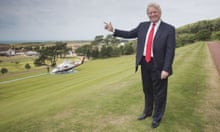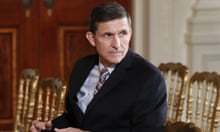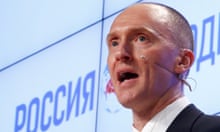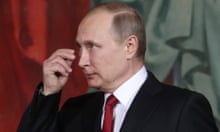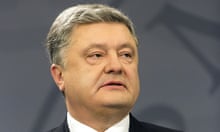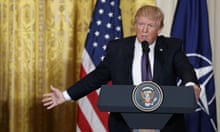Wilbur Ross, the Trump administration’s new commerce secretary, presided over a deal with a Russian businessman with ties to Vladimir Putin while serving in his previous role as vice-chairman of the Bank of Cyprus.
The transaction raises questions about Ross’s tenure at the Cypriot bank and his ties to politically connected Russian oligarchs. It comes amid confirmation by the FBI that it is investigating possible collusion between the Trump campaign and Moscow to influence the outcome of the presidential election.
In 2015, while he served as vice-chairman of the Bank of Cyprus, the bank’s Russia-based businesses were sold to a Russian banker and consultant, Artem Avetisyan, who had ties to both the Russian president and Russia’s largest bank, Sberbank. At the time, Sberbank was under US and EU sanctions following Russia’s annexation of Crimea. Avetisyan had earlier been selected by Putin to head a new business branch of the Russian president’s strategic initiative agency, which was tasked with improving business and government ties.
Avetisyan’s business partner, Oleg Gref, is the son of Herman Gref, Sberbank’s chief executive officer, and their consultancy has served as a “partner” to Sberbank, according to their website. Ross had described the Russian businesses – including 120 bank branches in Russia – as being worth “hundreds of millions of euros” in 2014 but they were sold with other assets to Avetisyan for €7m (£6m).
Ross has not been accused of wrongdoing and there is no indication the Russian deal violated US or EU sanctions. Ross resigned from the Bank of Cyprus board after he was confirmed as commerce secretary last month.
Democrats raised questions about Ross’s tenure at the Bank of Cyprus before his confirmation, but Ross has said the White House has refused to allow him to respond to the queries. Senator Cory Booker and other Democrats recently sent a third letter to Ross with more questions, including whether Ross had ever done business with companies that were under US sanctions.
In 2014, the Bank of Cyprus was still considered to be in a precarious state following a dramatic €10bn rescue of Cyprus’s banking sector by the ECB and the IMF. Under the terms of the deal, many of the bank’s wealthy Russian deposit holders lost their cash and became shareholders in the bank.
Ross, who had made billions of dollars years earlier by betting on bankrupt steel mills, was known for taking risky bets. But his decision to inject €400m into the bank with other investors encompassed a different kind of risk. It put him at the centre of the biggest financial institution in a country that was widely considered to be a tax haven for Russian oligarchs, even as the US and EU were imposing sanctions on Russia. In 2014, the year he made his investment, the US State Department considered Cyprus an area of “primary concern” for money laundering (pdf), according to its official assessment.
Ross was appointed vice-chairman at the bank after his investment in 2014, a post he shared with a deposit holder-turned-shareholder, Vladimir Strzhalkovsky, referred to in Russian media as a former KGB official and Putin ally. According to the bank’s annual reports, the two attended two board meetings together in 2014 and as many as five together in 2015 before Strzhalkovsky’s May 2015 resignation from the board. One of the questions that has been posed to Ross by Democratic senators is whether he ever had contact with Strzhalkovsky.
One of Ross’s first big decisions at the bank was the appointment of former Deutsche Bank chief executive Josef Ackermann as chairman, whom he chose in part because of Ackermann’s “huge Rolodex”, according to a 2014 Bloomberg interview.
Ackermann’s ties to Russia were especially strong, including a warm relationship with Putin and Herman Gref of Sberbank.
Peter Harrell, who served as the deputy assistant secretary for counter-threat finance and sanctions in the State Department at the time and is now an adjunct senior fellow at the Center for a New American Security, said Cyprus was “obviously” one of the places the Obama administration was worried about at the time because it was seen as a place that could help Russian entities evade sanctions, imposed as a result of the conflict over Crimea.
“Cyprus is an EU member state, but given the opacity of the environment there, given the history, there was a risk that it could be used to evade sanctions,” Harrell told the Guardian.
But Ross seemed unfazed by the conflict and its potential impact in an interview with Fox Business News in 2014, telling Maria Bartiromo the tourism industry was surging in Cyprus. When pressed to explain his plans for the bank’s assets in Russia, Ross said they had not been particularly profitable and were only worth “a couple of hundred million euros”.
“Clearly when they are in the middle of a war is not the right time to do anything,” he told Bartiromo.
A year later, Bank of Cyprus announced (pdf) it was offloading the Russian business, including loan exposures, to Avetisyan for €7m. The core assets had been purchased for €450m in 2008. Deutsche Bank’s London office advised Bank of Cyprus on the deal.
There are many factors that could have depressed the price including the financial crisis and the conflict between Russia and Ukraine.
The Bank of Cyprus said the sale of its Russian business was part of a restructuring plan to dispose of non-core assets and that the deal had been agreed after a “rigorous sale process involving experienced external advisers”. It said the sale price reflected the market price and that the sale had resulted in a “significant reduction of risk” and reduced the bank’s exposure to the Russian economy.
“The buyer was both unknown to and unconnected to members of Bank of Cyprus Group’s board of directors,” the bank said.
A spokesman for the commerce department said Ross had been a successful chairman or lead director of over a hundred companies and was an “incredibly successful investor who made the best business decisions possible”.
“In that role, he had a duty to get the best deals for his company, which is a skill he will now bring to bear for the American people,” the spokesman said.
A spokeswoman for Avetisyan declined to comment.
Legal experts who specialise in sanctions law said the deal did not violate EU or US sanctions.
But Harrell, the former Obama administration official, said he found connections between Russia and the Trump administration to be “strange and troubling” and that he included Ross’s tenure at the Bank of Cyprus among the “long list of concerns”. He said: “As an American, doing business between Cyprus and Russia, I would want a higher standard of scrutiny on any deal.”
In a separate management decision under Ross’s watch, Bank of Cyprus gave Alfa Bank, Russia’s largest private bank, until 2019 – four more years than originally planned – to pay back a €100m debt it owed in connection to Alfa’s purchase of the bank’s Ukrainian assets. Alfa Bank still owed Bank of Cyprus €57m as of the end of September. Bank of Cyprus said the extension was provided because of the “worsening geopolitical situation in Ukraine”.
John Koenig, former US ambassador to Cyprus, told the Guardian he did not believe Ross had ever gone out of his way to favour Russian investors or the Kremlin. At the time, he recalled, officials were actively seeking investments from big US and European banks but nobody was interested until Ross came along.
“There is no reason to look for a sinister narrative,” Koenig said. “This was a high-risk environment and there were not a lot of external investors interested. It’s the kind of situation he specialises in, isn’t it?”

